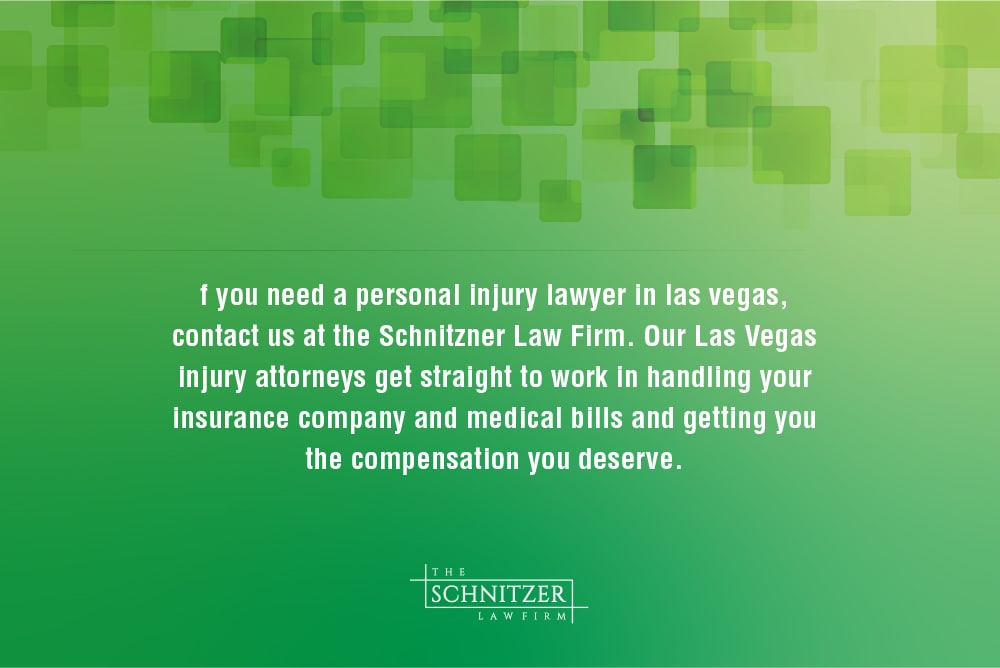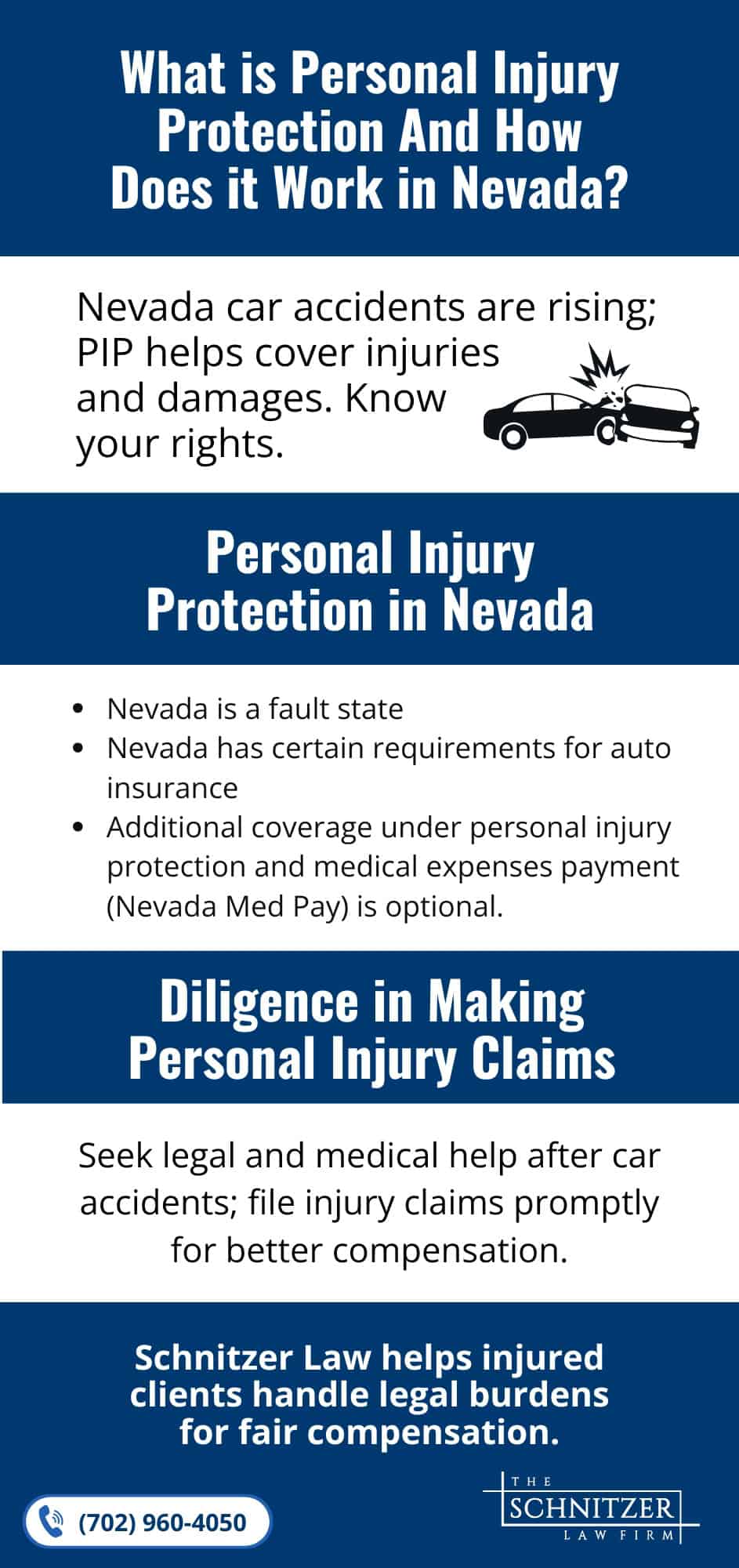A car accident wreaks a certain degree of havoc in your life depending on its severity. Not only do you have damage to your car, but you are likely to have some form of injury as a result. That’s where personal injury protection, abbreviated as PIP, may come in. There is an uptick in car accidents as a result of increasing visitors to Nevada at any time. It is therefore important to know how to get care and compensation in the event of a car accident, as well as how personal injury protection works in the state of Nevada.
What is Personal Injury Protection
When you get into a car accident, personal injury protection allows coverage for costs for the personal injuries you and any passengers in the car suffered as a result of the accident. The coverage under personal injury protection may include:
- Medical treatment, including physical therapy, if necessary
- The cost of any deaths that occurred, including funeral expenses and burial
- Lost work wages due to disability
- Compensation for being unable to do daily activities due to physical limitations
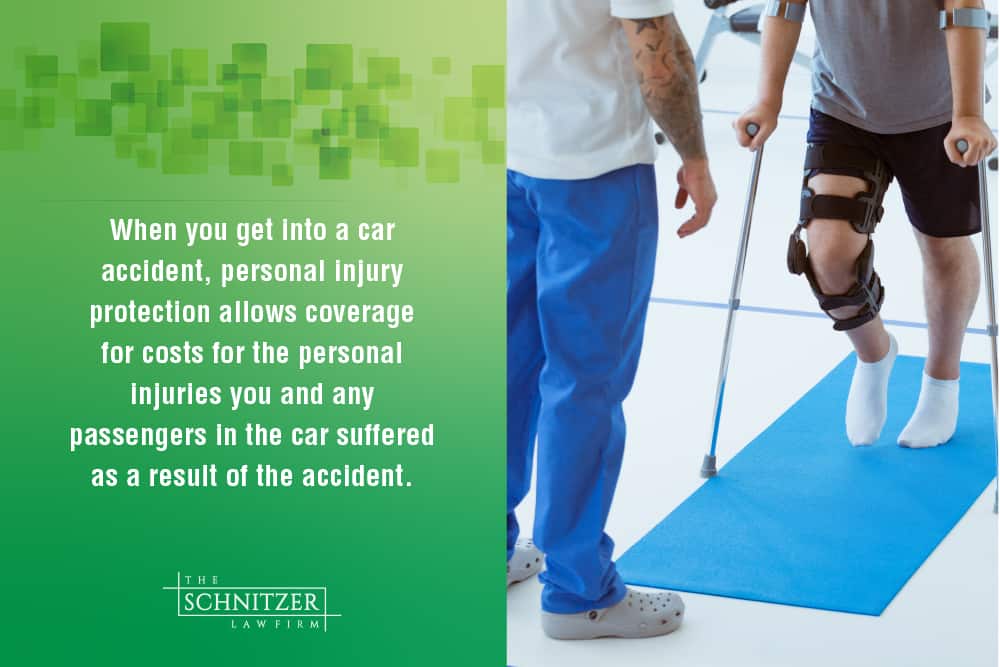
These medical and economic benefits are available to you if you have added personal injury protection to your auto insurance. That way, you don’t have to worry about paying out of pocket or finding other means to pay, although you are free to consider other options in addition to or instead of using PIP. However, because it is optional for all drivers’ auto insurance, it might not exactly be clear how it works in the state of Nevada.
Personal Injury Protection in Nevada
There are specific regulations and benefits for personal injury protection in the state of Nevada:
- Nevada is a fault state. This means that the at-fault driver must pay for all damages caused by the car accident. It is different from no-fault, which allows you to recover damages regardless of who caused the accident, or without having to prove the other driver caused it. It is also different from comparative fault, which allows both parties to recover damages based on comparative percentages of fault. On the other hand, Nevada has comparative negligence or shared fault law, which allows plaintiffs to recover damages even if they were partly at fault. The limit for shared fault is 50 percent.
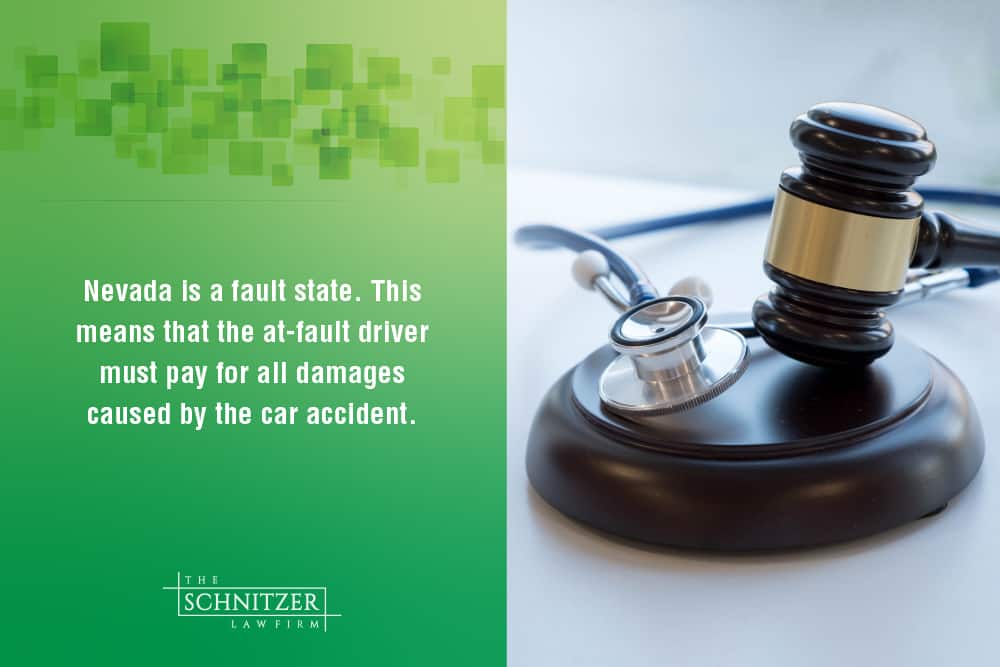
- Nevada has certain requirements for auto insurance. As a fault state, Nevada requires all drivers to have minimum car insurance with Bodily Injury Liability. That means they must have the following requirements of compensation limits: $20,000 for property damage in at-fault accidents; either $25,000 or $50,000 for at-fault injury or death; and $25,000 or $50,000 for uninsured or underinsured motorist accidents which are not-at-fault.
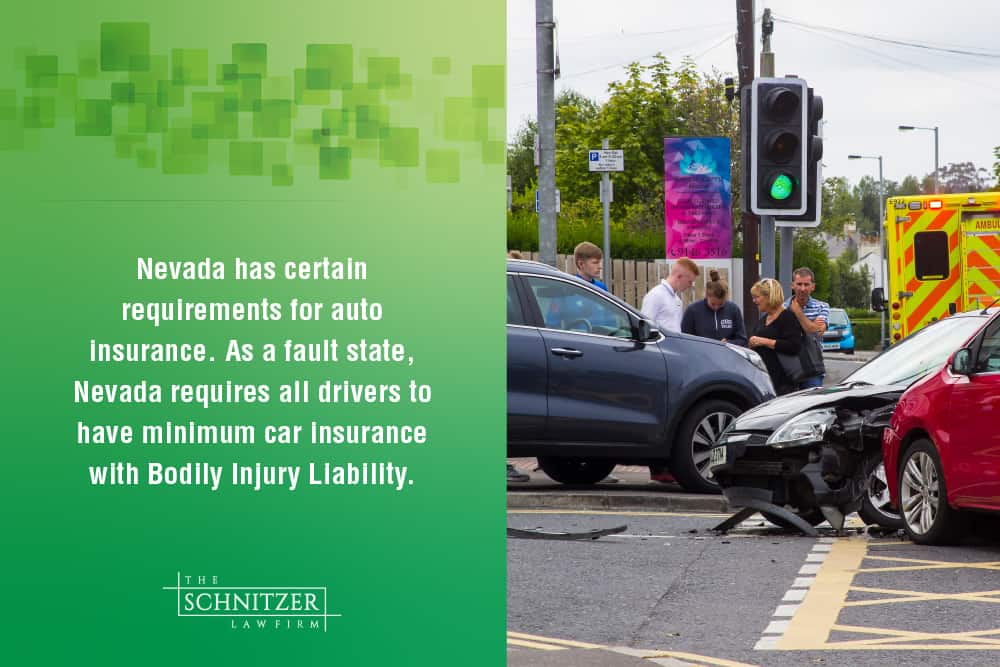
- Additional coverage under personal injury protection and medical expenses payment (Nevada Med Pay) is optional. Although only no-fault states require PIP as both parties must be responsible for their own injuries, Nevada drivers can have additional coverage up to a certain limit. If you as the at-fault driver uses Bodily Injury Liability to apply coverage to the other driver, you can either use your medical insurance (if allowed) or PIP. You can also use Nevada Med Pay regardless of who is at fault to cover necessary and reasonable medical bills and funeral expenses up to your policy limit. You can then use PIP to cover additional expenses over the cap, which can be either $1,000, $2,000, $5,000 or $10,000 per individual.
When you use PIP, your insurance company investigates your personal injury claim and releases an amount, which is based on your auto insurance coverage limits. It is a highly desirable option to have and offers more coverage than Med Pay. The one caveat is that it does not offer coverage for pain and suffering, which is non-economic and would require going to trial for a lawsuit.
Diligence in Making Personal Injury Claims
The first and most important thing you should do if you have been involved in a car accident is to consult legal advice. Even if you believe you have not been injured, it is also advisable to seek medical attention for an evaluation, because you might actually be injured but not yet feel the effects. If you discover that you have been injured, you should file a personal injury claim right away, even if you do not have medical insurance. Although Nevada has a statute of limitations of 2 years from the date of the accident, immediate filing will greatly benefit you in getting the compensation you need whether you settle out of court or go to trial. The more time you allow to elapse between the date of the accident and your filing, the less settlement compensation the insurance company will deem acceptable for you.
It is possible to immediately start the process of seeking settlement compensation with a highly knowledgeable and experienced lawyer. If you need a personal injury lawyer in las vegas, contact us at the Schnitzner Law Firm. Our Las Vegas injury attorneys get straight to work in handling your insurance company and medical bills and getting you the compensation you deserve.
